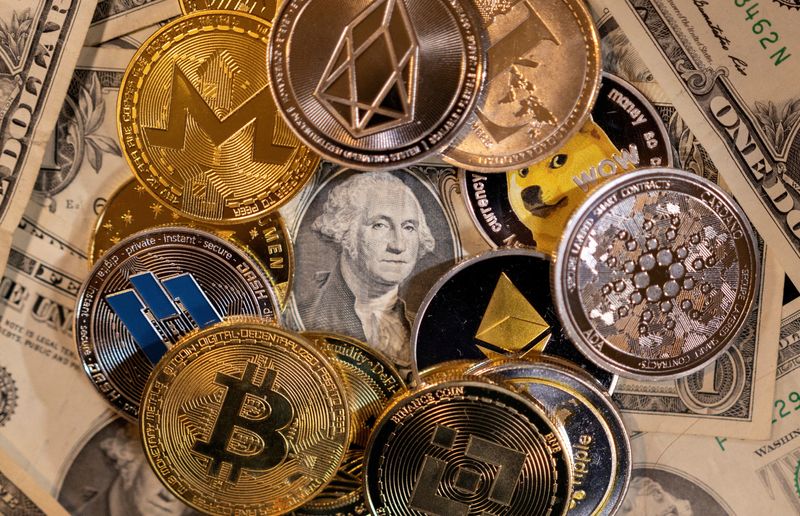LONDON (Reuters) – U.S. crypto firm Genesis is working to preserve client assets and strengthen liquidity, it said in a letter to clients on Wednesday, adding that it would take “weeks rather than days” to form a plan.
Genesis’ lending arm, Genesis Global Capital, froze customer withdrawals on Nov. 16, citing “unprecedented market dislocation” following the collapse of major crypto exchange FTX.
Genesis, owned by venture capital firm Digital Currency Group (DCG), said last week it was seeking to avoid a bankruptcy filing.
“Working in consultation with highly experienced advisors and in close collaboration with our owner, DCG, we are evaluating the most effective path to preserve client assets, strengthen our liquidity, and ultimately move our business forward,” Genesis said in the letter.
“We anticipate that it will take additional weeks rather than days for us to arrive at a path forward.”
All other parts of Genesis’ business are “fully operational,” it added.
Crypto lenders, the de facto banks of the crypto world, boomed during the pandemic, attracting retail customers with double-digit rates in return for their cryptocurrency deposits.
Genesis had almost $3 billion in total active loans at the end of the third quarter, its website said. Last year, Genesis extended $130.6 billion in crypto loans and traded $116.5 billion in assets.
Genesis and Digital Currency Group owe customers of the Winklevoss twins’ crypto exchange Gemini $900 million, the Financial Times reported on Saturday.
Gemini said in a statement on its website on Nov. 16 that it had partnered with Genesis for its yield-generating “Earn” program, leaving customers of this product unable to redeem their funds when Genesis froze withdrawals.
(Reporting by Elizabeth Howcroft; Editing by Tom Wilson and Richard Chang)
